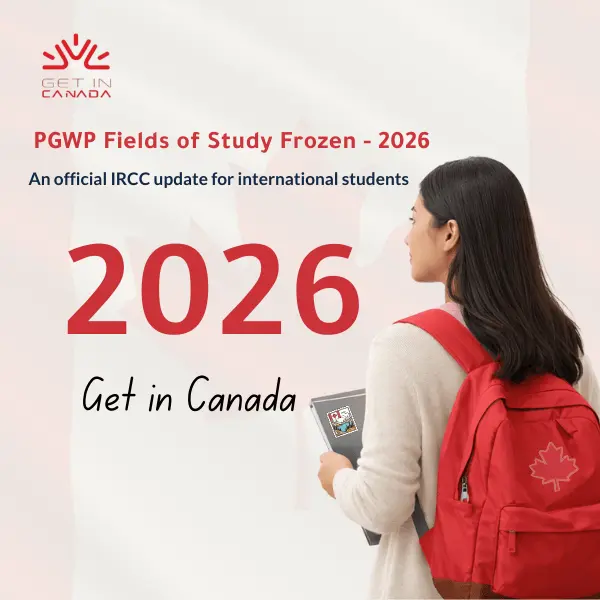New Pilot Program to Allow Francophone Students to Have Permanent Residency Directly
International students have long been welcomed in Canada, especially those who want to study in a bilingual and multicultural setting. The Canadian government just unveiled a brand-new program designed to support the Francophone populations outside of Quebec.
The Francophone Minority Communities Student Pilot (FMCSP) initiative has been announced by the Honorable Marc Miller, Minister of Immigration, Refugees, and Citizenship. It is expected to start on August 26, 2024. This program offers French-speaking overseas students from the Americas, the Middle East, and Africa a direct route to permanent residency in Canada, to attract and keep them.

Expanding Welcoming Francophone Communities
Minister Miller also disclosed that the Welcoming Francophone Communities (WFC) program has been expanded by ten additional communities to the current network. With this growth, 24 towns across Canada are now involved. These communities have been chosen especially because they have the capacity to offer French-speaking immigrants a supportive and welcoming atmosphere. As stated during the Acadian World Congress in Nova Scotia, the WFC initiative’s extension demonstrates the Canadian government’s dedication to supporting thriving Francophone communities outside of Quebec.
Find out if you are eligible to get in Canada →
Eligibility Criteria for the FMCSP Program
The Francophone Minority Communities Student Pilot FMCSP program is designed to accommodate the demands of foreign students who speak French and aspire to study and eventually settle in Canada. To qualify, candidates must fulfil certain requirements:
- Citizenship: Candidates must be nationals of nations that are members of the Francophonie International Organization. This covers a wide variety of countries in the Americas, the Middle East, and Africa.
- Acceptance: In order to apply under the FMCSP, prospective students must get a letter of acceptance from a participating designated learning institution (DLI) in Canada.
- Study Program: The course of study must be post-secondary, full-time, lasting no less than two years, and culminating in the awarding of a diploma or degree. Furthermore, more than half of the homework needs to be completed in French.
- Financial Requirements: Applicants must show that they have the means to pay for their own living expenses as well as the tuition for any family members who may be travelling with them. The amount needed varies according to the size of the community surrounding the main campus of the university.
- Language proficiency: Using recognized language tests like TEF Canada or TCF Canada, candidates must demonstrate their competence in French at a level 5 or above on the Niveaux de compétence linguistique canadiens (NCLC) scale.
- Residency: Applicants must not be citizens of Canada at the time of application.
Countries Targeted by the FMCSP
The FMCSP program reflects Canada’s broad commitment to Francophone populations globally, since it is available to inhabitants of several nations in Africa, the Middle East, and the Americas.
Among the African nations that qualify are: Benin
- Benin
- Burkina Faso
- Burundi
- Cabo Verde
- Cameroon
- Central African Republic
- Chad
- Comoros
- Côte d’Ivoire
- Democratic Republic of the Congo
- Republic of the Congo
- Djibouti
- Egypt
- Equatorial Guinea
- Gabon
- Guinea
- Guinea-Bissau
- Madagascar
- Mali
- Mauritania
- Mauritius
- Morocco
- Niger
- Rwanda
- São Tomé and Principe
- Senegal
- Seychelles
- Togo
- Tunisia
Lebanese nationals are eligible to participate in the program from the Middle East, while residents of Dominica, Haiti, and Saint Lucia are welcome to apply from the Americas.
Communities Supporting the Initiative of Welcoming Francophone
An environment that is both supportive and rich in culture awaits French-speaking immigrants to Canada owing in large part to the Welcoming Francophone Communities (WFC) initiative. Communities from British Columbia, Manitoba, Nova Scotia, New Brunswick, Saskatchewan, and Ontario are included in this initiative’s most recent expansion. These communities have been chosen because they are able to provide a friendly environment that aids in the successful integration of Francophone immigrants into Canadian society.
Strategic Importance and Future Prospects
The introduction of the FMCSP program and the expansion of the WFC initiative are significant steps in Canada’s ongoing efforts to strengthen its Francophone immigration strategy. These programs are expected to play a pivotal role in revitalizing Francophone communities across the country, particularly in regions outside Quebec. By attracting a diverse group of French-speaking international students, Canada is not only addressing workforce needs but also promoting the preservation and growth of French culture nationwide.
Long-Term Vision for Francophone Communities
Canada’s long-term vision for its Francophone communities involves:
- Creating a more inclusive and vibrant Francophone presence across the country.
- The FMCSP program is a strategic move to ensure that French-speaking students not only come to Canada to study but also consider it a permanent home.
- By offering a direct pathway to permanent residency, Canada is making it clear that Francophone students are valued and integral to the country’s multicultural fabric.
The Francophone Minority Communities Student Pilot and the expanded Welcoming Francophone Communities initiative represent Canada’s commitment to fostering diverse and inclusive communities. These programs provide a unique opportunity for French-speaking international students to achieve their educational and professional goals in a supportive environment, while also contributing to the cultural and linguistic diversity of Canada.
The FMCSP program is a once-in-a-lifetime chance for individuals who fit the requirements and are ready to start a journey that might result in permanent residency in one of the friendliest nations on earth, Canada.











